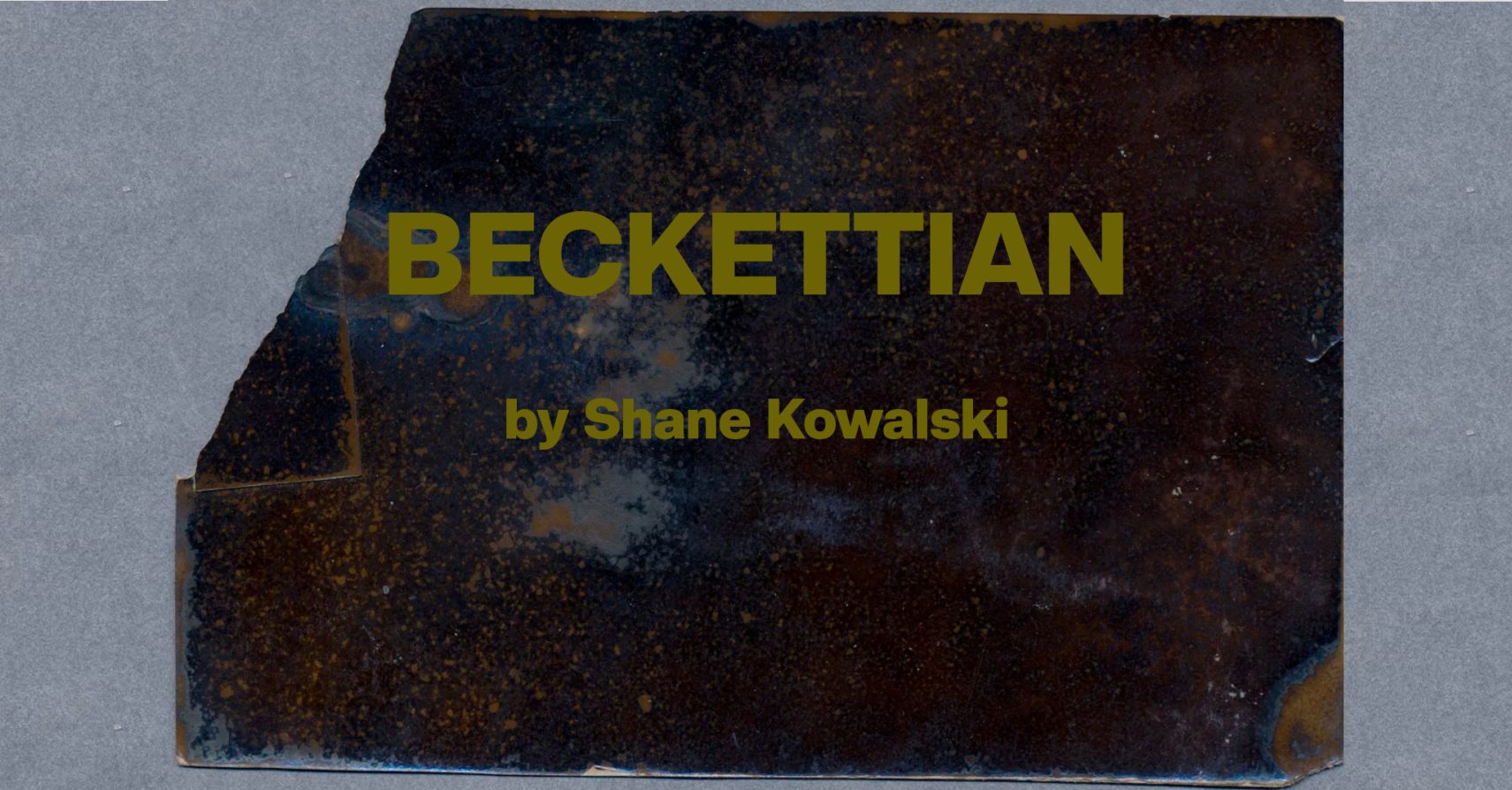Murphy was visiting Malone. It had been a while since they had seen each other. Murphy being busy in the city, while Malone had lingered in the countryside. Murphy remembered those dark country roads, whizzing down them in the nights as a youth. No noise. But at the same time, all the noise in the world. The humming shadows. Malone was always the type to leave enough room between himself and other people. Murphy, on the other hand, had become a successful C-AWP II, a thing he so frequently had to explain to new acquaintances that it had lost all meaning. He no longer truly knew what the acronym stood for, nor the nature of the work. More recently he had taken to going into the office—a large high rise in the city with a long elevator ride—and sitting there confused as to what to do. The confusion was so wrought he thought he was having a stroke one day, even going so far as to say to a passing coworker, “I think I’m having a stroke.” But the coworker took this to be yet another slice of dark humor common to the world of the office. Murphy frequently went home with a headache. He had begun distancing himself from his girlfriend, Molly. It was a slow, painful process that would irrevocably damage their default modes in relationships going forward. Murphy felt bad about it. It was nothing Molly did or didn’t do. He felt it was connected to his confusion at work, but he couldn’t say in what way. On the other end, Molly was beginning to think Murphy needed help. It pained and angered her to feel pushed away, but she also felt like Murphy was spinning down a dark road, without light or guide, and would sure enough find himself crashed into a large tree. Part of this feeling was informed by a recent event she had witnessed on a ferry to the cliffs. It was very cold and the choppy ocean sprayed the deck from time to time. A young man, very well dressed considering the casual nature of the occasion, had gotten up and started stripping off his clothes. Soon he was naked and screaming that someone named Molly was down there, pointing to the ocean. This struck Molly for obvious reasons. The young, naked man had begun trying to climb the ferry’s rail to hurl himself over when a group of men pulled him back at last. They threw him to the deck, where he flopped like a fish. It all lingered for Molly, although she told nobody about it, least of all Murphy. And it was only a moment, nights later, when Murphy stayed over and was stripping off his clothes in preparation for a moment of intimacy, that she felt like she had witnessed an omen or premonition. That, somehow, Murphy was that young man, naked and flopping on the deck of the ferry. Murphy, of course, knew none of this. He had everything one could seem to want and yet felt fraught over all of it. It wasn’t until he got the letter from Malone that he thought maybe this was the answer. Going to see Malone! Malone was always a dissident, in every possible way. His life, in the country, the hardscrabble hew of it, just seeing it, would straighten Murphy out. He thought of that old children’s book about mice, one being from the city and the other the country. He couldn’t remember anything else about them. It seemed like the last book he had ever read. He had stopped after that one. The mice. The city one and the country one. Whatever their conflict was. When he finally made it to the tiny house in the country, after a six-hour train ride and then another hour and a half car ride there, Murphy was surprised to find a note at the door. It said: Friend, when you arrive, please just come in. I’m sorry. Murphy thought this was strange. He went in. There he found a neat and orderly house. Malone had done well for himself. Yes, he had stayed in the country, but he had made it nice. It seemed he had invested something into his solitary life. This warmed Murphy’s heart and made him feel guilty over the discontent he felt at his own life. Friendship, he thought, was a viaduct from one loneliness to another. When he went into the living room he found Malone. He was sitting in his rocking chair, very still, holding a large shotgun in such a manner that it pointed directly at his face. He seemed upset, perhaps had even been crying a little. He looked disappointed to see Murphy. “Oh,” Malone said. “I was supposed to have done it already. But I couldn’t. I just couldn’t. You weren’t supposed to see me living like this!”
Shane Kowalski lives in Pennsylvania. His work has appeared in Conjunctions, EPOCH, Fence, The Iowa Review, Muumuu House, and elsewhere. He's the author of the story collections Small Moods (Future Tense Books) and Are People Out There (Future Tense Books)

